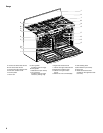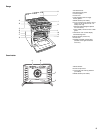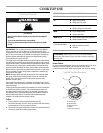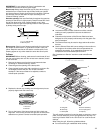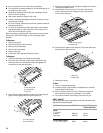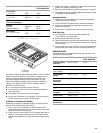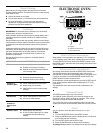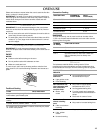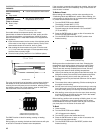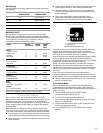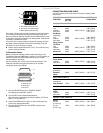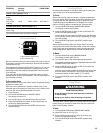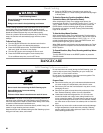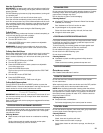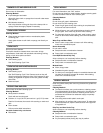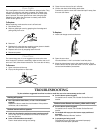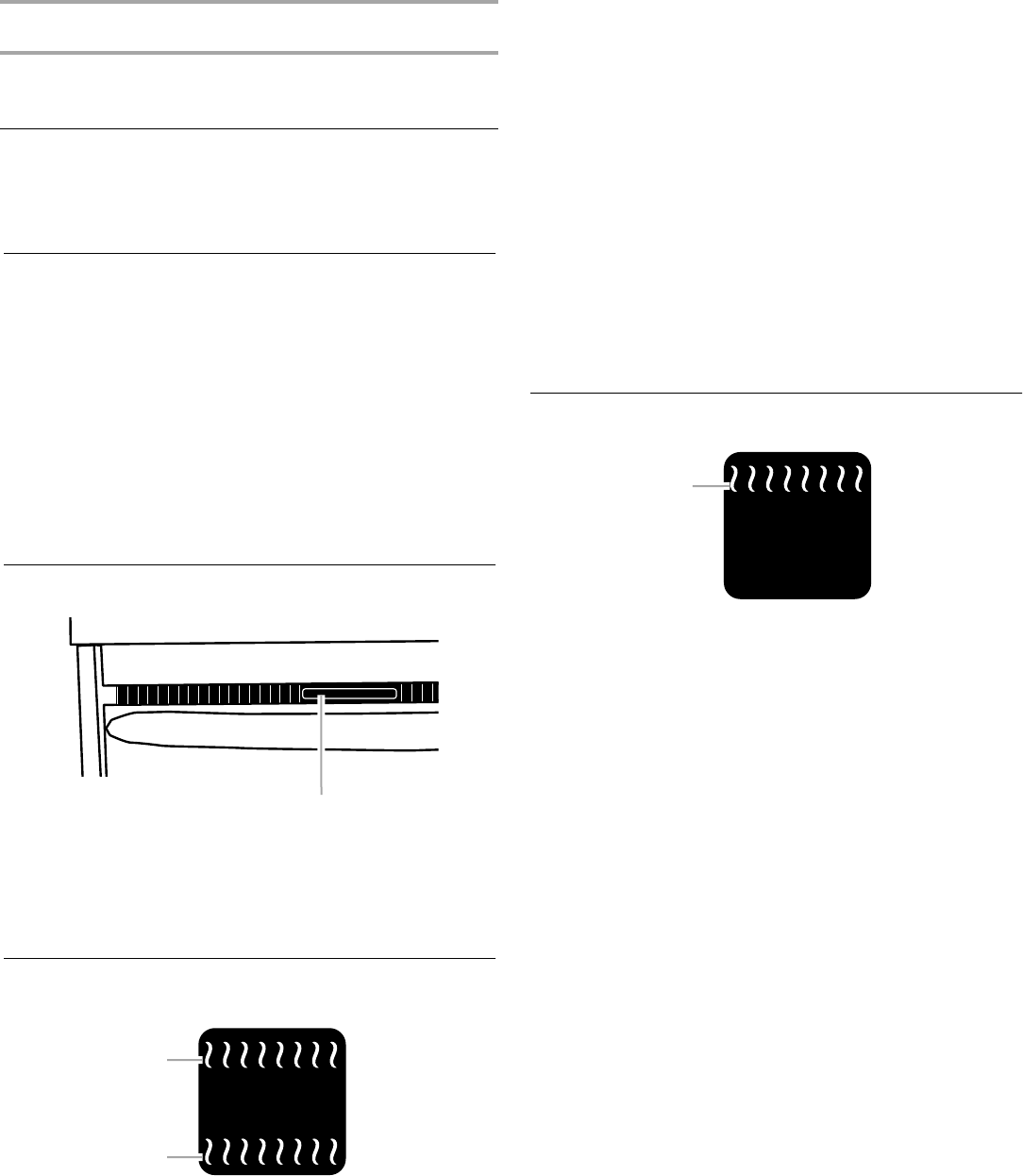
16
Meat Thermometer
On models without a temperature probe, use a meat
thermometer to determine doneness of meat, poultry and fish.
The internal temperature, not appearance, should be used to
determine doneness. A meat thermometer is not supplied with
this appliance.
■ Insert the thermometer into the center of the thickest portion
of the meat or inner thigh or breast of poultry. The tip of the
thermometer should not touch fat, bone or gristle.
■ After reading the thermometer once, push it into the meat
½" (1.3 cm) more and read again. If the temperature drops,
cook the meat or poultry longer.
■ Check all meat, poultry and fish in 2 or 3 different places.
Oven Vent
The oven vent should not be blocked or covered since it allows
the release of hot air and moisture from the oven. Blocking or
covering the vent will cause poor air circulation, affecting cooking
and cleaning results. Do not set plastics, paper or other items
that could melt or burn near the oven vent.
Bake
The BAKE function is ideal for baking, roasting or heating
casseroles.
During baking or roasting, the bake and broil elements will cycle
on and off in intervals to maintain oven temperature.
If the oven door is opened during baking or roasting, the broil and
bake elements will turn off immediately. They will come back on
once the door is closed.
To Bake or Roast:
Before baking and roasting, position racks according to the
“Positioning Racks and Bakeware” section. When roasting, it is
not necessary to wait for the oven to preheat before putting food
in, unless recommended in the recipe.
1. Turn the SELECTOR knob to BAKE.
The display will read 350°F (177°C).
2. Turn the SET knob to desired temperature.
The bake range can be set between 170°F and 500°F
(77°C and 260°C).
3. Press the ENTER button to start, or after 10 seconds, the
function will start automatically.
4. Turn the SELECTOR knob to the RESET position when
finished cooking.
Broil
A. Broil element (example only)
Broiling uses direct radiant heat to cook food. Changing the
temperature when broiling allows more precise control when
cooking. The lower the temperature, the slower the cooking.
Thicker cuts and unevenly shaped pieces of meat, fish and
poultry may cook better at lower broiling temperatures.
■ Use only the broiler pan and grid provided with the range. It is
designed to drain juices and help avoid spatter and smoke.
■ For proper draining, do not cover the grid with foil. The
bottom of the pan may be lined with aluminum foil for easier
cleaning.
■ Trim excess fat to reduce spattering. Slit the remaining fat on
the edges to avoid curling.
■ Pull out oven rack to stop position before turning or removing
food. Use tongs to turn food to avoid the loss of juices. Very
thin cuts of fish, poultry or meat may not need to be turned.
■ After broiling, remove the pan from the oven when removing
the food. Drippings will bake on the pan if left in the heated
oven, making cleaning more difficult.
Before broiling, position rack according to Broiling chart. It is not
necessary to preheat the oven before putting food in unless
recommended in the recipe. Position food on grid in the broiler
pan, then place it in the center of the oven rack.
To Broil:
1. Close the door.
2. Turn the SELECTOR knob to BROIL.
“HI” will appear on the display
3. Turn the SET knob to the desired broil level.
4. Press the ENTER button to start, or after 10 seconds, the
function will start automatically.
5. Turn the SELECTOR knob to the RESET position when
finished cooking.
Stoneware/Baking
stone
■ Crisp crusts
■ Follow manufacturer’s instructions.
Ovenproof
glassware, ceramic
glass or ceramic
■ Brown, crisp
crusts
■ May need to reduce baking
temperatures 25°F (15°C).
A.Oven vent
A.Broil element (example only)
B.Bake element (example only)
BAKEWARE/
RESULTS
RECOMMENDATIONS
A
A
B
A



